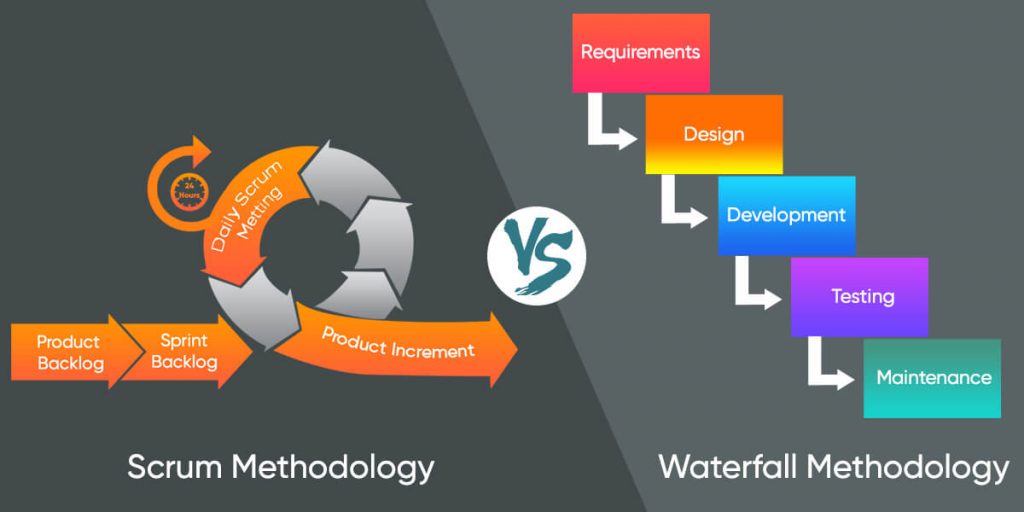As you can see in the other two posts in which we explained the two methods (Scrum & Waterfall), they are very contradictory

On the one hand, there is the waterfall method, which is straightforward and follows a chronological approach, consequently clients and customers are not able to implement changes during the process just beforehand. Meanwhile, the scrum method is less structured but offers more flexibility. In addition to that, clients can implement changes at all times during the project.
The waterfall method can take more time than the scrum method, while both methods are implemented properly, because it is chronological, and you can only start when another task is finished. Nevertheless, the risk that the project fails is higher, when working with the scrum method, because it is less structured and needs more self-organization.
Another difference is, that since the project size of the two methods vary, it is very difficult to replace a member during the process in the scrum method, because team size is really small (5-7 people). In the waterfall method you can calculate the budget more precisely then in the scrum method. This is because it follows a chronological approach and all different tasks are set up before the actual process starts. Regarding systematic risk management, the scrum method allows the team to deal with the risk immediately, because the team can focus on the problem, right when it appears.
Even though the two methods are not similar, both of them are project management tools that aim to deliver a successful outcome. Another similarity is that both tools require a team to work with.
In conclusion, both project management models can be very useful, depending on different factors like the size of a project, preferences, budget of a particular project as well as the organizational structure.
Source
https://www.simplilearn.com/scrum-project-management-article
Authors
Katharina Laura Steiger
Timo Bernd Schellinger
Lili Vankó
Juan Segundo Cianciarulo
Julia Banovici
See featured article:
